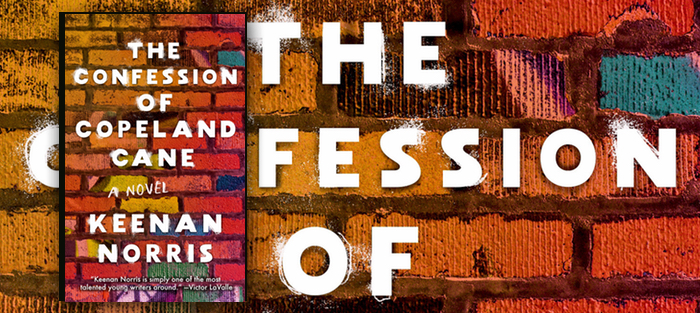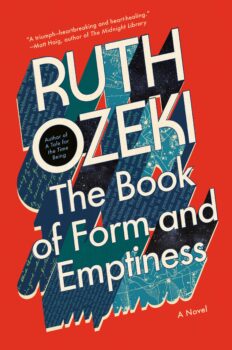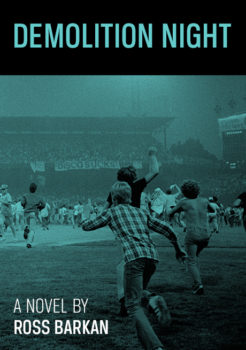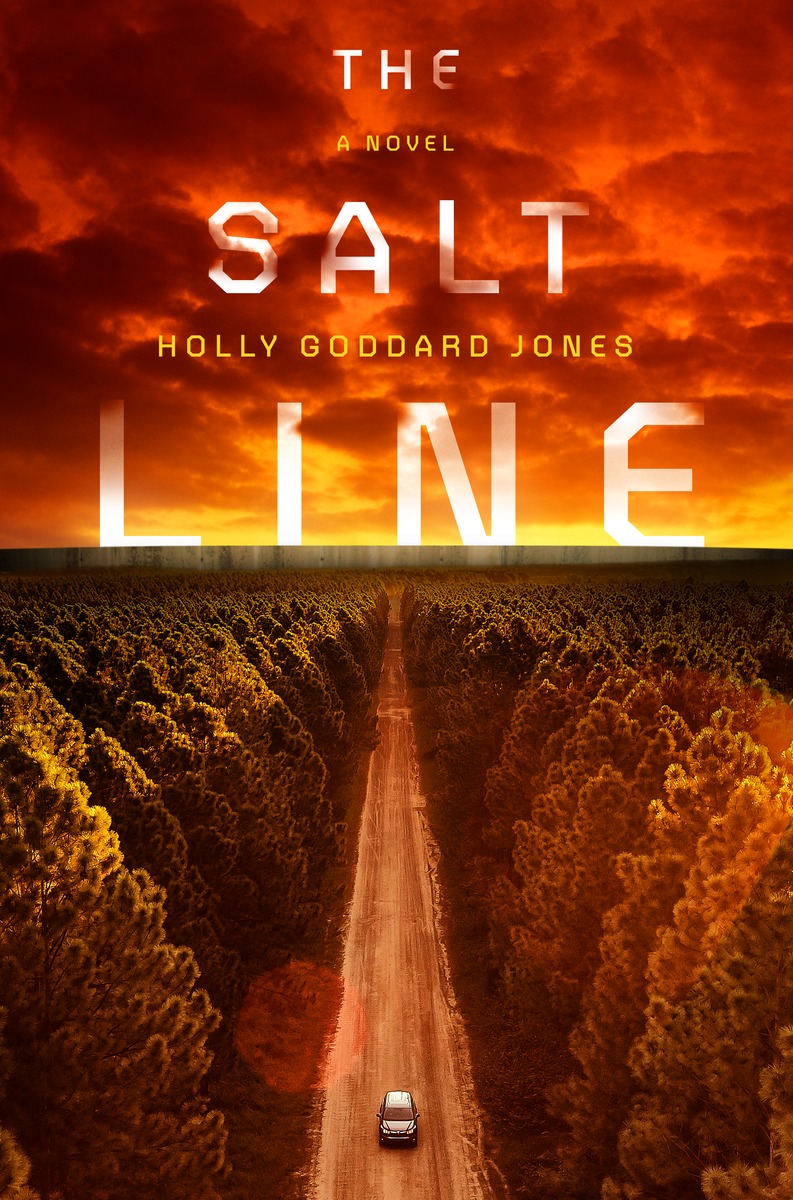Though Keenan Norris’ The Confession of Copeland Cane (Unnamed Press) can be described as a dystopian novel, categorizing it as such misses the point.
Set in East Oakland in the not-too-distant future, the novel opens with Jacqueline, a young Black student journalist, who is conflicted about whether or not to make a recording of Copeland Cane V.’s confession, who has reached out to her via phone, or advise he turn himself in. Cope is a wanted fugitive, but seems free of the fear Jacqueline experiences from the surveillance state and what’s happened to the media: “At college, my Media Studies professors tell me that the merger of network news with national security has been so subtle and so slow that now that it’s happened, now that it’s in place, its omnipresence escapes notice.”
But Cope reminds Jacqueline nothing is safe, and she accepts the risk of making a recording of his story. He begins: “Real talk, Jacq: I only ask that the people hear me all the way out. It won’t jeopardize y’all no kinda way, except maybe in y’all’s feelings.”
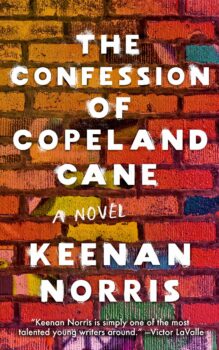 Cope’s voice remains conversational, both humorous and perceptive. After offering a disclaimer that he gets sidetracked when he tells stories, Cope begins talking about his loving parents and growing up in Rockwood, a soon-to-be gentrified neighborhood. Fed up with the decrepit conditions of their building, Cope plans to burn away the mold. Even though he doesn’t go so far as striking a match, the landlord presses charges, and Cope ends up in juvenile court, where the judge attests Cope’s actions are “rooted in an anti-white, anti-authority attitude.” Cope is sent to detention, where he spends his time reading, immersing himself in the written word. Literature opens opportunities to Cope after his release, as he’s soon recruited by a private school, and given a full scholarship. But after getting caught in the aftermath of a protest rally against police violence, this life falls apart and Cope, a track star, is literally on the run.
Cope’s voice remains conversational, both humorous and perceptive. After offering a disclaimer that he gets sidetracked when he tells stories, Cope begins talking about his loving parents and growing up in Rockwood, a soon-to-be gentrified neighborhood. Fed up with the decrepit conditions of their building, Cope plans to burn away the mold. Even though he doesn’t go so far as striking a match, the landlord presses charges, and Cope ends up in juvenile court, where the judge attests Cope’s actions are “rooted in an anti-white, anti-authority attitude.” Cope is sent to detention, where he spends his time reading, immersing himself in the written word. Literature opens opportunities to Cope after his release, as he’s soon recruited by a private school, and given a full scholarship. But after getting caught in the aftermath of a protest rally against police violence, this life falls apart and Cope, a track star, is literally on the run.
Framing Cope’s story as an informal interview, or a “confession,” does more than establishing the situation and stakes. Norris uses Jacqueline as a vehicle to illustrate how the media is portraying this young man—which, of course, calls to mind what has happened to murder victims, such as Trayvon Martin, in which a narrative gets written to dehumanize the victim in order to justify the murderer’s actions. Jacqueline describes a baby photo of Cope, then explains, “In a few months, upon your first birthday, you will become a gang member, according to a database, according to an algorithm, according to the news.” A reader unaware of the depth of systemic racism could take such lines as mere commentary. In fact, the line references the Californian database “CalGang,” which a 2016 audit found to have included one-year-old children.
Typically, novels set in the future require substantial world-building, but Norris doesn’t need to do much here. Grounded in our nation’s problematic history, the circumstances aren’t too different from now. Perhaps the biggest difference is the merge of media conglomerates and policing. Little needs explanation, and that which does, is mostly delivered through footnotes from media broadcasts and excerpts from Urban Dictionary—a clever device.
References to 2020 are sprinkled throughout the novel—both about Black Lives Matter protests and COVID-19. And while The Confession of Copeland Cane feels at times like a direct response to the preceding year, it never feels rushed or less than fully realized. Easy to make theories, but best to suspend wondering and fall under the spell of Copeland’s compelling voice.
Similarly, though the novel can be described as plot-heavy, its primary focus on voice and character is what ultimately makes it succeed. Cope comes to life through his conversational narration, largely set in the story’s present, with occasional quips about events that happened before his time, such as his mention of “super predators, or whatever it is Hillary Clinton called me ’fore I was born.” Such references should come off forced, yet don’t here. Norris gets away with it because Cope has such a strong, distinct voice, and his insightful nature is apparent. And because Norris has created such a vivid, infectious character, the media’s attack on Cope’s humanity become even more cutting:
“dying young is the best way to get popular, the memory of you always worth more’n you was cared for alive. I wondered what woulda came of the cop, whichever one killed me, if he woulda been charged, even took to trial, and if his paid leave woulda came along with an involuntary manslaughter or murder charge, and in the end, when I was long since buried and the ashes of Oakland was wiped away by time and cold winter and the rain that washes everything underground, if the case woulda been dismissed, or settled, or if he mighta got a year, reduced to nine months for good behavior.”
Cutting, too, how present-day this novel feels despite being set in the future and centered in our country’s racist history. This juxtaposition deftly highlights issues such as gentrification, inequality in the criminal “justice” system, and police violence toward Black bodies.
Norris’s narrative decision to have Cope’s story filtered through Jacqueline also raises interesting questions about who gets to tell one’s story and how. Cope needs Jacqueline to make a record of his account of events, which have been skewed by the media. Though, of course, she is a journalist too. Nevertheless, because the two have a personal relationship, Cope entrusts his story with her, and she offers his tale with the integrity it deserves. And perhaps it is because of Cope’s reverence for the written word that he believes in its power to potentially set him free.
While dystopian novels often serve as cautionary tales, The Confession of Copeland Cane is less harrowing because of the future it portrays than the mirror it holds up to our present-day situation, revealing how our current racist policing system and how living in America as a Black man can itself be a dystopia.

